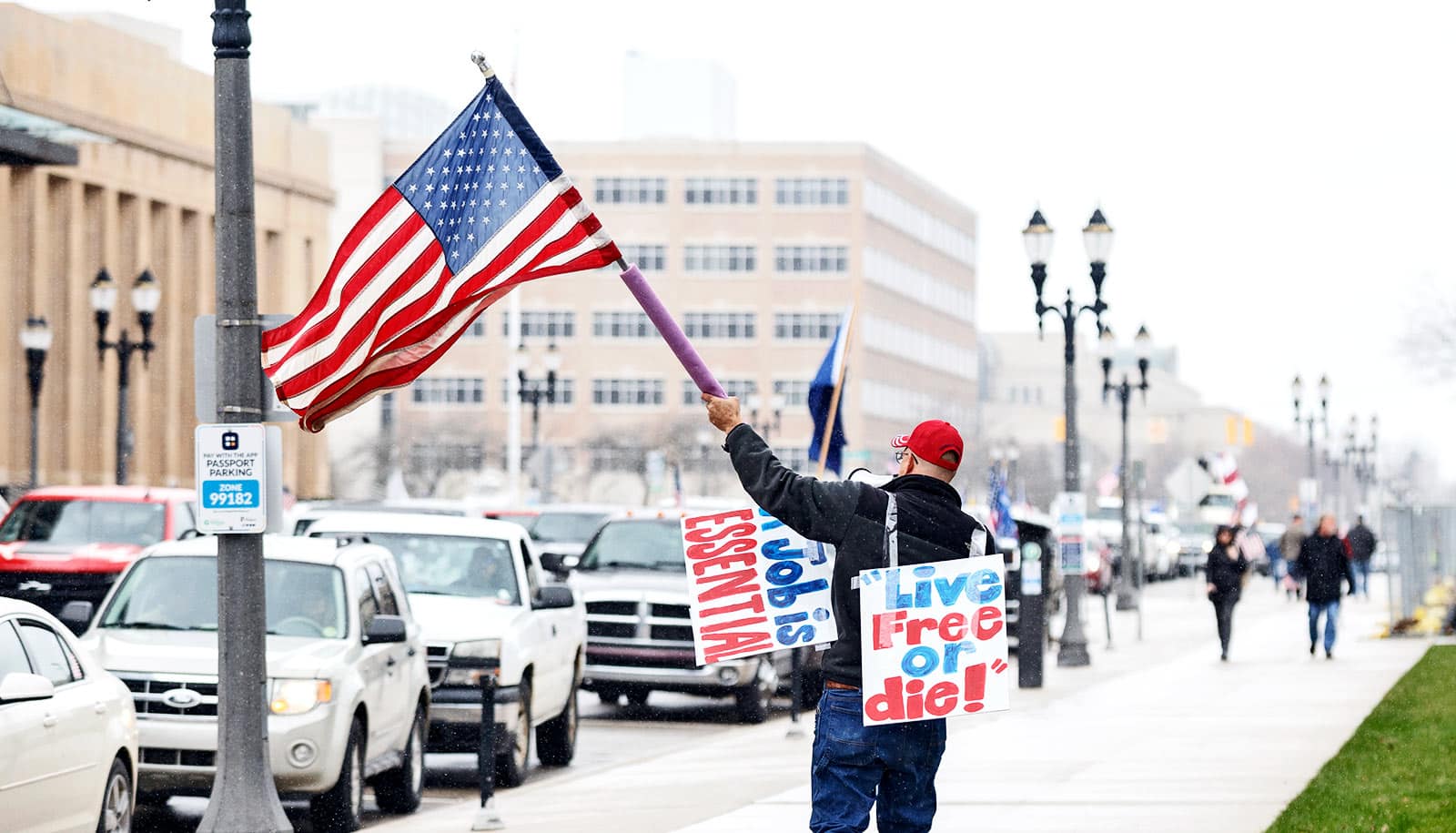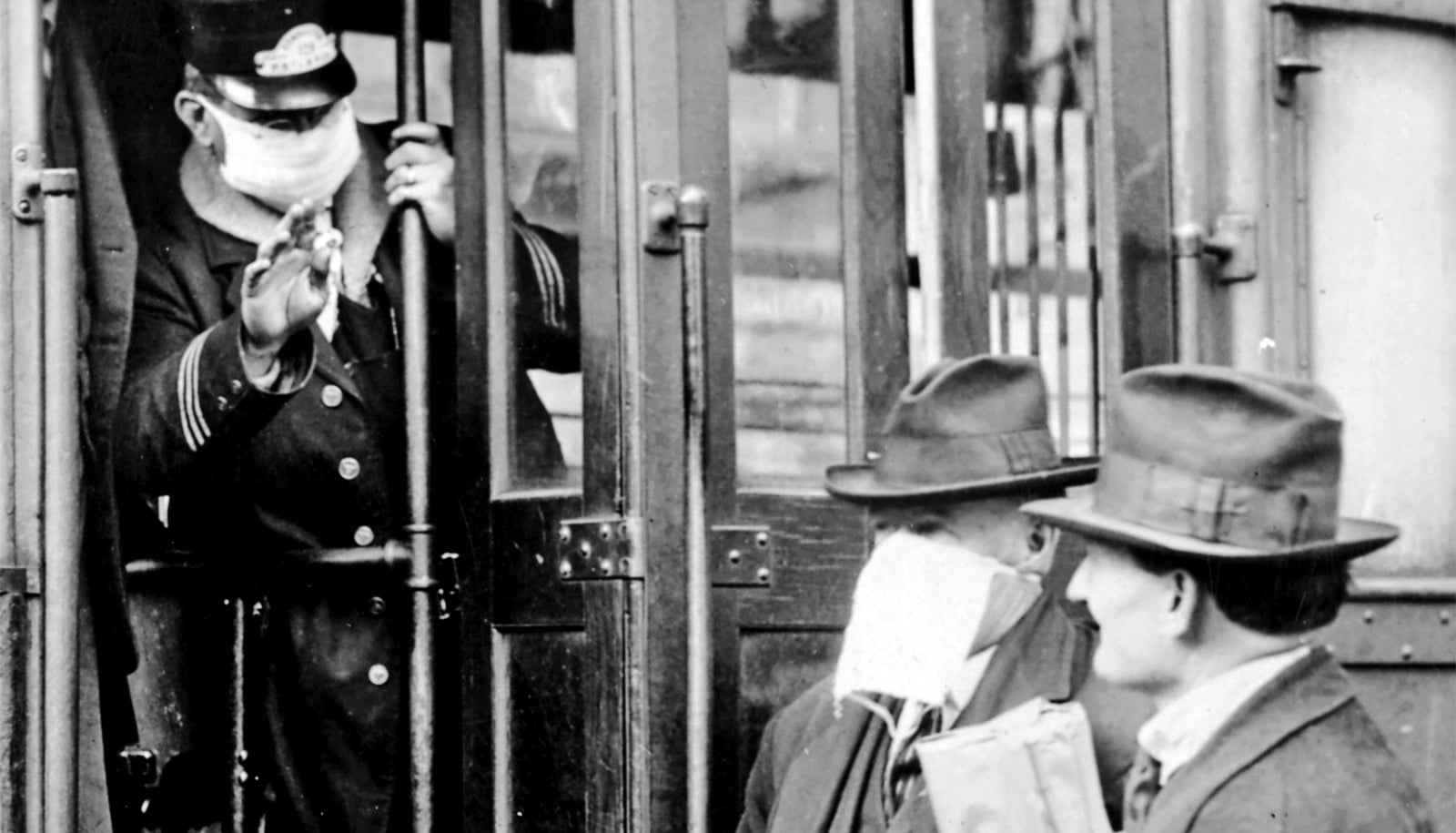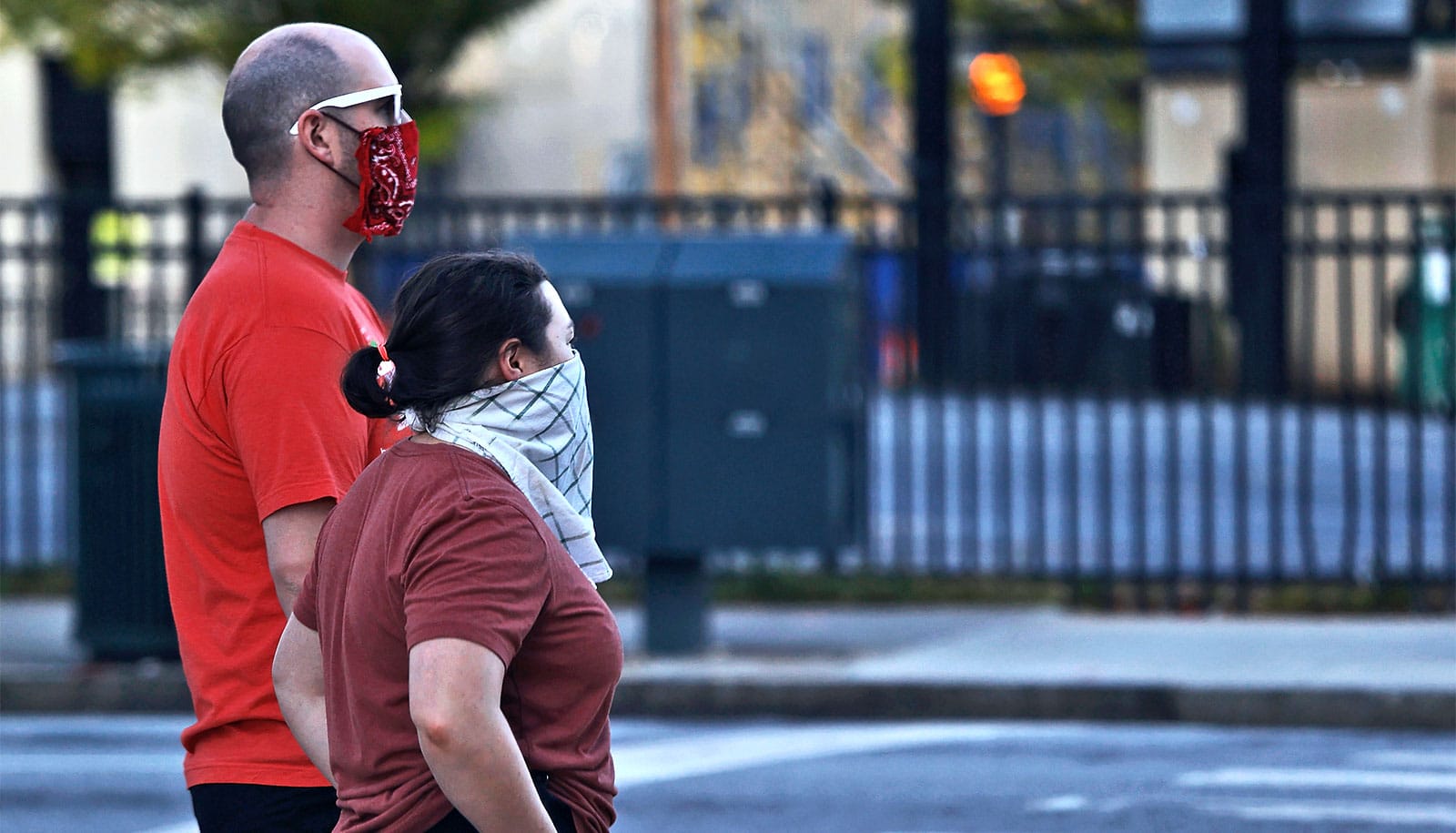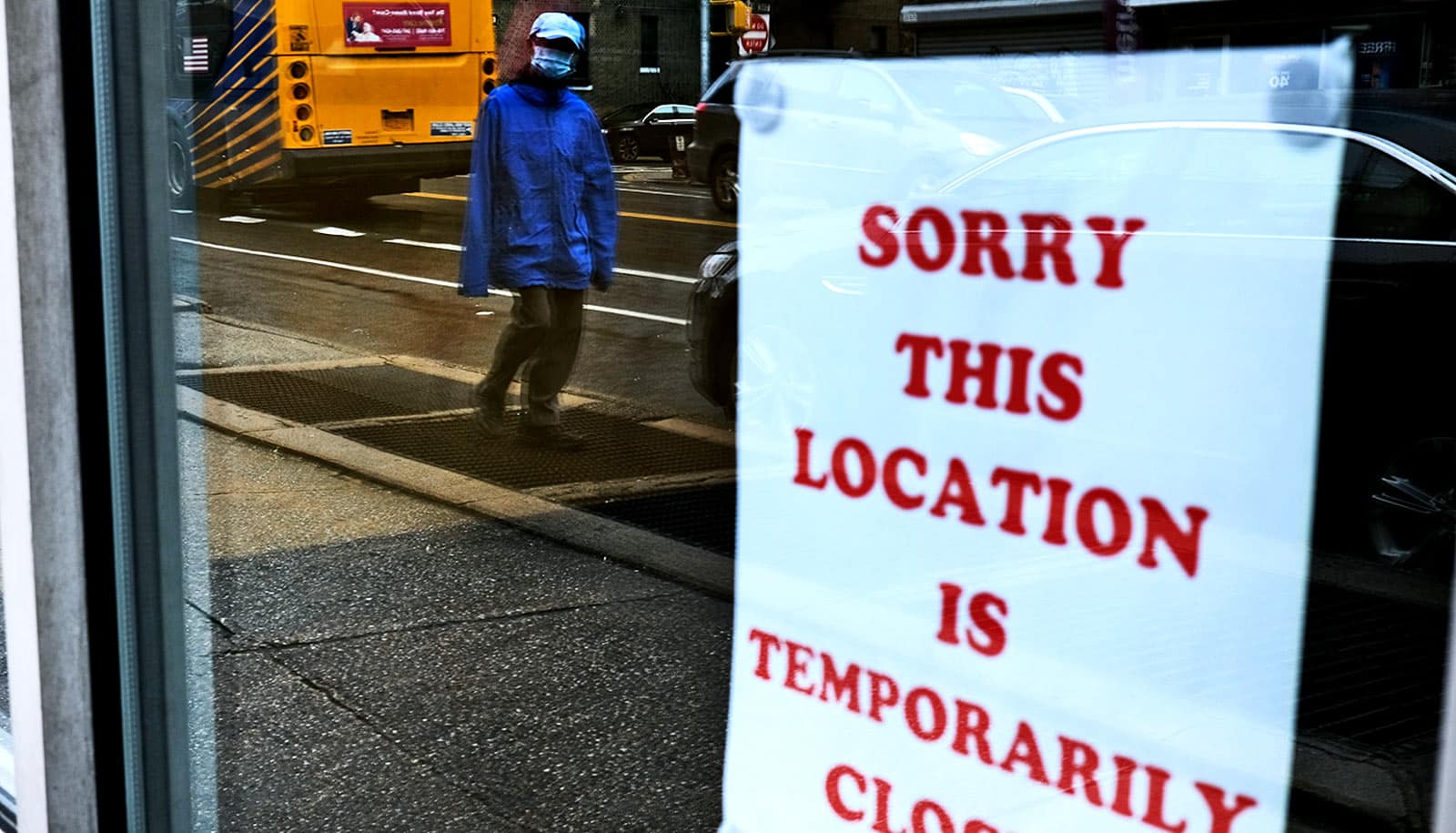Democrats and Republicans are equally open to many government measures that could slow the spread of the coronavirus but may also undermine civil liberties, according to a new national survey.
Conducted in mid-March as state governments were ramping up efforts to confront the pandemic, the poll reveals a “remarkable” level of tolerance for restrictions on liberty, says coauthor Adam Chilton, a professor at the University of Chicago Law School whose work has included empirical research on constitutional rights.
Researchers surveyed a nationally representative sample of 3,000 US residents—asking them about policy proposals that governments could enact to help control the spread of the virus.
Those proposals included travel restrictions, bans on the spread of misinformation, the quarantining of sick individuals in government facilities, the conscripting of health care workers, and the forced production and seizing of certain items, such as ventilators and personal protective equipment.
The findings reveal the extraordinary nature of the fight against COVID-19, and they raise important questions about what comes next: How far are we willing to go to stay safe? How do we prevent abuse once the immediate threat has receded?
Here, Chilton addresses those questions and explains what we can learn from history and what we should think about going forward:
Are you concerned about the constitutionality any of the government actions enacted so far: stay-at-home or shelter-in-place orders, fines for congregating outdoors, business shutdowns, attempts to ban the sales of firearms, travel restrictions, etc.?
I think most of what we’ve seen in the US has been constitutionally permissible. Although the Constitution restricts the power of the federal government, states have a pretty expansive power to regulate us to promote health and safety.
This is typically referred to as the police power, and it is what gives states the authority to zone neighborhoods, shut down businesses for violations of health codes, or fire marshals to restrict how many people can be in a bar and restaurant. To date, most of the steps that have been taken by cities and state—stay-at-home orders, rules against congregating, etc.—seem pretty clearly within that power.
Have you seen any constitutionally questionable proposals?
A few. The Trump administration warned TV stations that they could lose their operating licenses if they aired ads containing misleading information about Trump’s response to the coronavirus. If a license were rescinded, this may be a violation of the First Amendment, a threat to political speech.
Another instance involved states that initially didn’t include gun stores on their list of essential businesses but included various other businesses, like liquor stores. Gun stores pushed back—they essentially said, “We’re protected by the Second Amendment, and yet liquor stores are allowed to stay open and there’s nothing in the Constitution protecting them”—and most states responded by walking back their orders.
There was another example recently when Trump tweeted that he was considering locking down New York, New Jersey, and Connecticut. About five hours later he said he wasn’t going to do it. The idea that the federal government would not only restrict travel between states but try to lock people in place within a state—that that would be constitutionally questionable.
What type of precedent exists for these types of measures?
Supreme Court precedent on quarantine orders dates from roughly the start of the 20th century, when there were two cases—Louisiana v. Texas (1900) and Compagnie Francaise de Navigation a Vapeur v. Louisiana Board of Health (1902)—that acknowledged the states’ rights to prevent travel within their borders for legitimate quarantine reasons.
In the 1902 case, the city of New Orleans had an outbreak of yellow fever, and they imposed a quarantine, not letting new people into the city. When a ship arrived in New Orleans from Europe, passengers were not allowed to disembark—which is similar to what we’re now seeing in Rhode Island, Texas, Alaska, Hawaii, and other places where governors are trying to restrict citizens traveling to their states from coronavirus hotspots.
You asked what Americans thought about eight policy proposals that conceivably could be enacted to slow the virus’s spread. In broad strokes, what did you find?
Each proposal had majority support. In many cases, it was quite a large majority supporting measures that would restrict movement or speech or private activity in various ways. I assumed that respondents would be supportive of some proposals, especially restrictions on travel. But I was definitely surprised to see such big majorities, and I was surprised to see support for proposals that restricted speech.
Did Democrats and Republicans differ in their responses?
This is perhaps the most shocking finding. Although our survey had a large partisan gap in terms of President Trump’s handling of the crisis—34% of Democrats were supportive of the handling compared with 88% of Republicans—when we asked about the specific policies, a majority of both Democrats and Republicans supported every policy. In many of the cases, the gap between the groups was very small.
Of these eight policy proposals you surveyed, which had the highest levels of support and which had the lowest?
Banning non-citizens from entering the country had the highest level of support from both Democrats and Republicans, at roughly 85% overall. Taking over private businesses and seizing property had the lowest level of support among both Democrats and Republicans, at roughly 55% overall. Most of the policies had support around 75%, including detentions in government facilities, conscripting people to work, suspending religious services, and movement outside of homes.
What’s next with this research?
We’re looking at other countries. We’ve already run the same basic survey in Japan and Israel. We’re also hoping to run surveys in Taiwan, China, South Korea, and possibly other countries. We’re trying to see to what extent the United States’ response is unique. My instinct is that it is not. I expect that there will be some differences across countries for a variety of reasons, but that we’ll generally find that, during a crisis, people are willing to let their government take dramatic actions if they believe it will help keep them safe.
Source: University of Chicago



